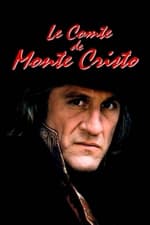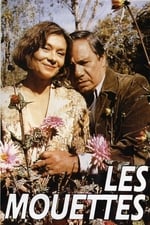Informations personnelles
Célèbre pour Interprétation
Apparitions connues 40
Genre Homme
Date de naissance 3 mai 1934
Date de décès 23 mai 2013 (79 ans)
Lieu de naissance Alexandria, Egypt
Alias
- Giuseppe Mustacchi
- Yussef Mustacchi
Score de contenu
100
Superbe ! Cette fiche semble complète !
Connectez-vous afin de
signaler un problème.
Biographie
Georges Moustaki (born Giuseppe Mustacchi; 3 May 1934 – 23 May 2013) was an Egyptian-French singer-songwriter of Jewish Italo-Greek origin, best known for the poetic rhythm and simplicity of the romantic songs he composed and often sang. Moustaki gave France some of its best-loved music by writing about 300 songs for some of the most popular singers in that country, such as Édith Piaf, Dalida, Françoise Hardy, Yves Montand, Barbara, Brigitte Fontaine, Herbert Pagani, France Gall, Cindy Daniel, Juliette Gréco, Pia Colombo, and Tino Rossi, as well as for himself.
Georges Moustaki was born Giuseppe Mustacchi in Alexandria, Egypt, on 3 May 1934. His parents, Sarah and Nessim Mustacchi, were Francophile, Greek Jews from the ancient Romaniote Jewish community. Originally from the Greek island of Corfu, they moved to Egypt, where young Giuseppe was born and first learned French. They owned the Cité du Livre − one of the finest book shops in the Middle East – in the cosmopolitan city of Alexandria, where many ethnic communities lived together.
Moustaki's father spoke five languages whereas his mother spoke six. The young Giuseppe and his two older sisters spoke Italian at home and Arabic in the streets. The parents placed Giuseppe and his sisters in a French school where they learned to speak French.
At the age of 17, after a summer holiday in Paris, Moustaki obtained his father's permission to move there, working as a door-to-door salesman of poetry books. He began playing the piano and singing in nightclubs in Paris, where he met some of the era's best-known performers. His career took off after the young singer-songwriter Georges Brassens took Moustaki under his wing. Brassens introduced him to artists and intellectuals who spent much of their time around Saint-Germain-des-Prés. Out of gratitude, Moustaki adopted the first name of the only musician he called "master".
Moustaki said that his taste for music came from hearing various French singers – Édith Piaf, Charles Trenet, Henri Salvador, Georges Ulmer, Yves Montand, Georges Guétary and Luis Mariano – sing.
Moustaki was introduced to Édith Piaf in the late 1950s by a friend whose praise of the young songwriter was so flattering that Piaf, then at the peak of her fame, requested somewhat sarcastically to hear him sing his best works. "I picked up a guitar and I was lamentable. But something must have touched her. She asked me to go and see her perform that same evening at the Olympia music hall and to show her later the songs I had just massacred."
He soon began writing songs for Piaf, the most famous of which, Milord, about a lower-class girl who falls in love with an upper-class British traveller, reached number one in Germany in 1960 and number 24 in the British charts the same year. It has since been performed by numerous artists, including Bobby Darin and Cher.
Piaf was captivated by Moustaki's music, as well as his great charm. Piaf liked how his musical compositions were flavored with jazz and styles that went beyond France's borders. Moustaki and Piaf became lovers and embarked on what the newspaper Libération described as a year of "devastating, mad love", with the newspapers following "the 'scandal' of the 'gigolo' and his dame day after day". ...
Source: Article "Georges Moustaki" from Wikipedia in English, licensed under CC-BY-SA 3.0.
Georges Moustaki (born Giuseppe Mustacchi; 3 May 1934 – 23 May 2013) was an Egyptian-French singer-songwriter of Jewish Italo-Greek origin, best known for the poetic rhythm and simplicity of the romantic songs he composed and often sang. Moustaki gave France some of its best-loved music by writing about 300 songs for some of the most popular singers in that country, such as Édith Piaf, Dalida, Françoise Hardy, Yves Montand, Barbara, Brigitte Fontaine, Herbert Pagani, France Gall, Cindy Daniel, Juliette Gréco, Pia Colombo, and Tino Rossi, as well as for himself.
Georges Moustaki was born Giuseppe Mustacchi in Alexandria, Egypt, on 3 May 1934. His parents, Sarah and Nessim Mustacchi, were Francophile, Greek Jews from the ancient Romaniote Jewish community. Originally from the Greek island of Corfu, they moved to Egypt, where young Giuseppe was born and first learned French. They owned the Cité du Livre − one of the finest book shops in the Middle East – in the cosmopolitan city of Alexandria, where many ethnic communities lived together.
Moustaki's father spoke five languages whereas his mother spoke six. The young Giuseppe and his two older sisters spoke Italian at home and Arabic in the streets. The parents placed Giuseppe and his sisters in a French school where they learned to speak French.
At the age of 17, after a summer holiday in Paris, Moustaki obtained his father's permission to move there, working as a door-to-door salesman of poetry books. He began playing the piano and singing in nightclubs in Paris, where he met some of the era's best-known performers. His career took off after the young singer-songwriter Georges Brassens took Moustaki under his wing. Brassens introduced him to artists and intellectuals who spent much of their time around Saint-Germain-des-Prés. Out of gratitude, Moustaki adopted the first name of the only musician he called "master".
Moustaki said that his taste for music came from hearing various French singers – Édith Piaf, Charles Trenet, Henri Salvador, Georges Ulmer, Yves Montand, Georges Guétary and Luis Mariano – sing.
Moustaki was introduced to Édith Piaf in the late 1950s by a friend whose praise of the young songwriter was so flattering that Piaf, then at the peak of her fame, requested somewhat sarcastically to hear him sing his best works. "I picked up a guitar and I was lamentable. But something must have touched her. She asked me to go and see her perform that same evening at the Olympia music hall and to show her later the songs I had just massacred."
He soon began writing songs for Piaf, the most famous of which, Milord, about a lower-class girl who falls in love with an upper-class British traveller, reached number one in Germany in 1960 and number 24 in the British charts the same year. It has since been performed by numerous artists, including Bobby Darin and Cher.
Piaf was captivated by Moustaki's music, as well as his great charm. Piaf liked how his musical compositions were flavored with jazz and styles that went beyond France's borders. Moustaki and Piaf became lovers and embarked on what the newspaper Libération described as a year of "devastating, mad love", with the newspapers following "the 'scandal' of the 'gigolo' and his dame day after day". ...
Source: Article "Georges Moustaki" from Wikipedia in English, licensed under CC-BY-SA 3.0.
Interprétation
Son
|
||||||||||||
|
||||||||||||
|
||||||||||||
|
||||||||||||
|
||||||||||||
|
Écriture
|








